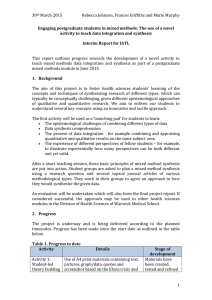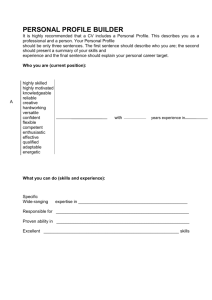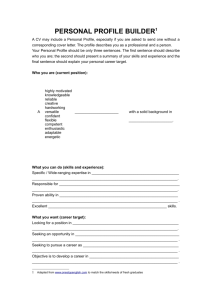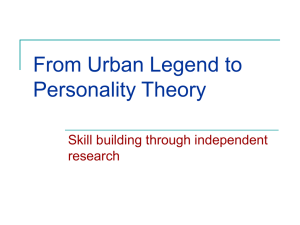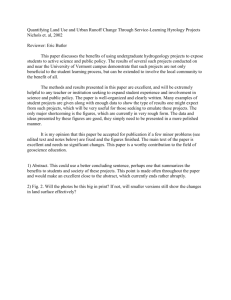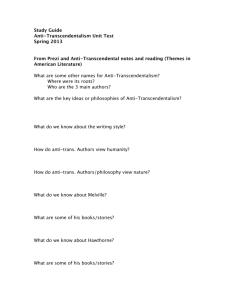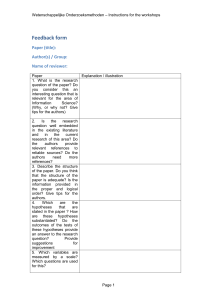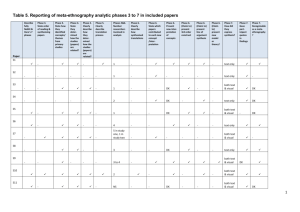How to Write a literature review
advertisement
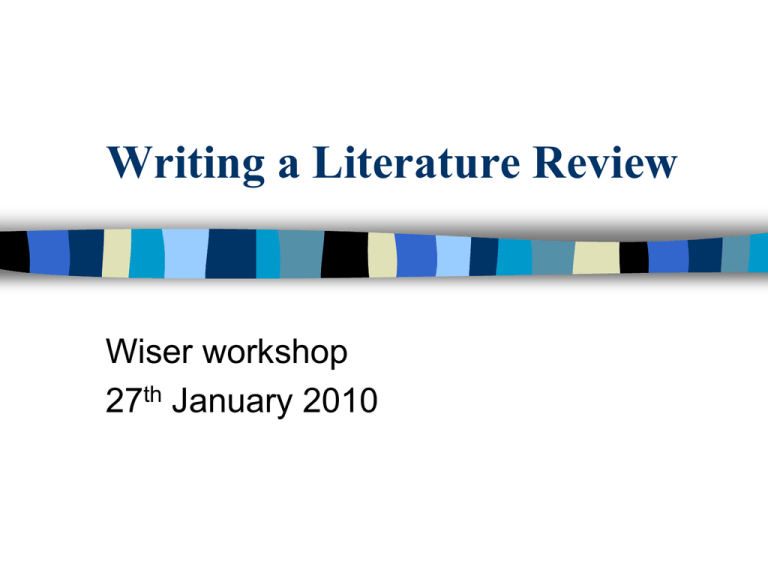
Writing a Literature Review Wiser workshop 27th January 2010 Overview • • • • • What is a literature review? Information seeking Critical Reading Synthesis and structure Reflections on your literature review What is a Literature Review? According to Bell (1999, p90): “Any investigation, whatever the scale, will involve reading what other people have written about your area of interest, gathering information to support or refute your arguments and writing about your findings.” Why is it important? • • • • • Teaches you more about the subject Shows you had read widely Demonstrate critical analysis Helps you refine your ideas Develops your subject-related vocabulary • Provides the context for your research • Enables comparison between your results and published research What skills do I need? • Information seeking • scanning the literature efficiently • identifying a set of useful articles and books • Critical reading • analysing texts to identify relevant, unbiased and valid studies • Synthesising • putting ideas from various sources together to build your argument Information seeking Where do I find information? • • • • • • • Books – library catalogue E-books E-journals Databases Library Focus Supervisor suggestions Websites? Information seeking What do I do? • • • • Start broad then focus Be prepared to go outside your subject Mind map key ideas / themes Records references and quotes carefully! Critical reading Evaluating websites • • • • Who is the author? Can you see bias or a vested interest? How detailed is the information? Does it say where the information is from? • Is it out of date? • How does it compare to other sources? Critical reading We do not expect academic authors to be lying or trying to swindle us But there may be hidden layers... Critical reading Academia is rarely about finding absolute truths... But is more often a case of discussing Viewpoints Interpretation significance Critical reading Authors mean to be... • • • • Logical – but have made a mistake Impartial – but have made assumptions Honest – but have been mislead New – but haven’t seen my evidence Synthesising What should I be writing about? • What has already been written on the topic • What has not been written on that topic and problems with existing literature • How your research addresses the 'gap', or ‘weakness’ in the existing knowledge base • Don’t just reproduce/summarise! • Show how the literature relates to the research project. Synthesising Useful questions to guide you • What is already known in the area? • Where are the inconsistencies or shortcomings in present knowledge? • Why study (further) the research problem? • What contribution can the present study be expected to make? Synthesising Structuring the Lit Review When you have mapped out the contents, you need to decide the order in which you are going to write about them: • • • • general to specific chronologically according to different schools of thought argument and counterargument Synthesising Tips on Structure Group authors who worked on similar themes & link ideas Make clear links between ideas inside the literature review and your own research Synthesising Don’t... Just list all the books you have read and write a bit about each Keep making the same points Put any of your data in the literature review or discuss your findings Reflect on your literature review • What are you doing right? • What might you be doing wrong? • Have you had any feedback yet? • What can you do to improve it? Final suggestions • Keep revising your work on the literature review – it will be a work in progress • Continue reading around the subject & adding to the review • Re-read the literature review & keep improving it
